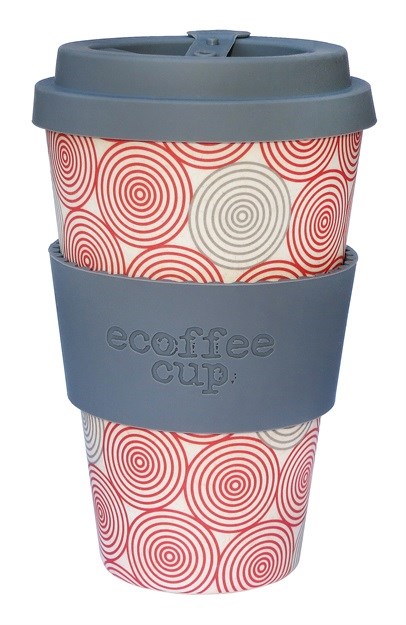Ecoffee Cup, a local South African brand has launched today, Monday, 15 August, a unique range of reusable and recyclable takeaway cups that are also stylish, in response to the waste epidemic that sees 100bn single-use coffee cups thrown away each year.
Joris van Grieken, marketing director at Ecoffee Cup, says, “It's a big problem, needing a big and beautiful solution.
“In 2015, when we read that half a trillion single-use cups are manufactured each year (and that most of these end up as landfill) – we felt that what society was doing was creating more harm than good. Therefore, we set out to make some change, not revolutionary but somehow contributory to social good. We certainly never set out to be eco-warriors, but once you become aware of the unsustainability of single-use items, you realise that everyone needs to change, therefore we created a product that is environmentally very strong and beautifully designed.”
Bamboo fibre cup
Created with the world’s fastest growing, most sustainable crop – naturally organic, bamboo fibre and non-GMO cornstarch, Ecoffee Cup is BPA and phthalate free, with a tactile experience similar to thick, yet light cardboard. Fast growing, quickly renewable and highly sustainable, bamboo is a naturally organic crop that uses no pesticides in its farming. Bamboo is also naturally sterile, preventing flavour taint and, unlike plastic, it contains no petrochemicals and is biodegradable at the end of its lifecycle. The material is also super light, just 135g, and it has a fully resealable ‘drip-proof’ lid, making it perfect to take with you everywhere you go. The cup itself is dishwasher safe and should last for years - if you treat it nicely.
Explains founder and head designer, David McKlagan, “Our design philosophy is a simple one: Have Fun. Do Good. We think there should be an Ecoffee Cup for everyone, that is why we have more and more designs from international designers. Our influences come from the streets of Kyoto or holy sites of Isfahan – to the coffee houses of Stockholm and hipster bars of Melbourne. We are about surprise and we take our design language seriously. ‘Cool’ is an over-used word, but we think that people don't like feeling ‘nagged’ or preached at about the environment – so we think that the focus is on creating a stylish, desirable product first, social conscience later. This is the best way to get people to change. Collectability and peer-to-peer recommendation – are also important ways to influence consumer decisions.
“People are definitely taking coffee more seriously. Less milk, more focus on flavour and variants. The trend in UK is downwards in size, brought about by the 8oz Flat White phenomenon, emanating from Australia and New Zealand. The big chains are cottoning on to better quality ingredients, driven by the rise of ‘artisan’ coffee bars. The US, via New York, is starting to change slowly, although there is still the crazy 20 and 30oz variants that a few of the big chains seem intent on.”
“I think we have definitely hit the zeitgeist, especially in places such as Germany, France and Scandinavia, where taxes on single-use items are imminent. Something like this even makes for a great socially conscious gift. Every time you use your Ecoffee Cup you are helping make a tiny dent in the 100bn single-use coffee cups that go to landfill each year,” he concludes.
Growing market
Coffee is a growing market, with Statistics SA showing that coffee shops have contributed to around 2.8% of the positive annual growth around takeaway and fast food. There has also been a 7.1% increase in income since 2014, with growth across the country. The South African Coffee Club (SACC) says coffee consumption and business has grown dramatically in South Africa with less than 20 roasteries ten years ago versus just over 100 today, many of them small startups.
Moreover, while a reusable cup may seem like a drop in the ocean to some, one only has to look at Woolworths, which, according to its website, has made a significant dent in the sale of reusable bags with over 920,000 bags sold and a number of new designs launched.
Relative plastic shopping bag sales have also decreased significantly over the last financial year. The 25% reduction target (of 1.0) had been set for 2012, off a 2007 benchmark of 1.3 plastic bags per transaction, with 0.995 already being achieved during the current year. If one retailer can make that possible for bags, what may be possible for coffee cups?
For more information, go to EcoffeeCup.co.za, find them on Facebook or #stopthe100billion on Twitter.













































